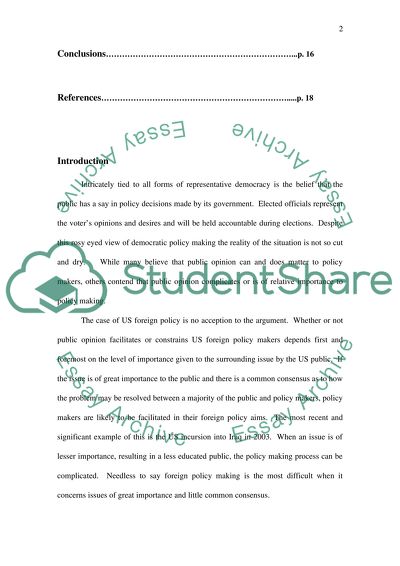Cite this document
(“US Public Opinion and Foreign Policy Coursework”, n.d.)
Retrieved from https://studentshare.org/politics/1528011-us-public-opinion-and-foreign-policy
Retrieved from https://studentshare.org/politics/1528011-us-public-opinion-and-foreign-policy
(US Public Opinion and Foreign Policy Coursework)
https://studentshare.org/politics/1528011-us-public-opinion-and-foreign-policy.
https://studentshare.org/politics/1528011-us-public-opinion-and-foreign-policy.
“US Public Opinion and Foreign Policy Coursework”, n.d. https://studentshare.org/politics/1528011-us-public-opinion-and-foreign-policy.


